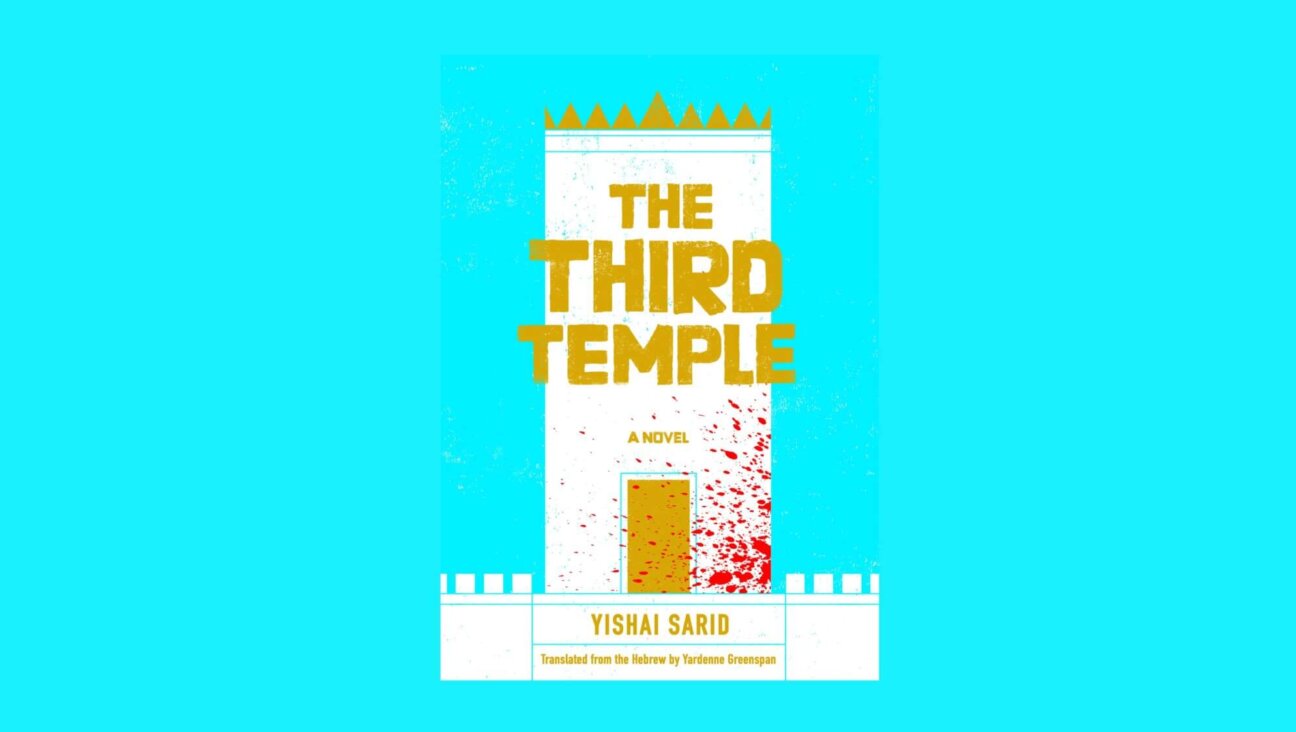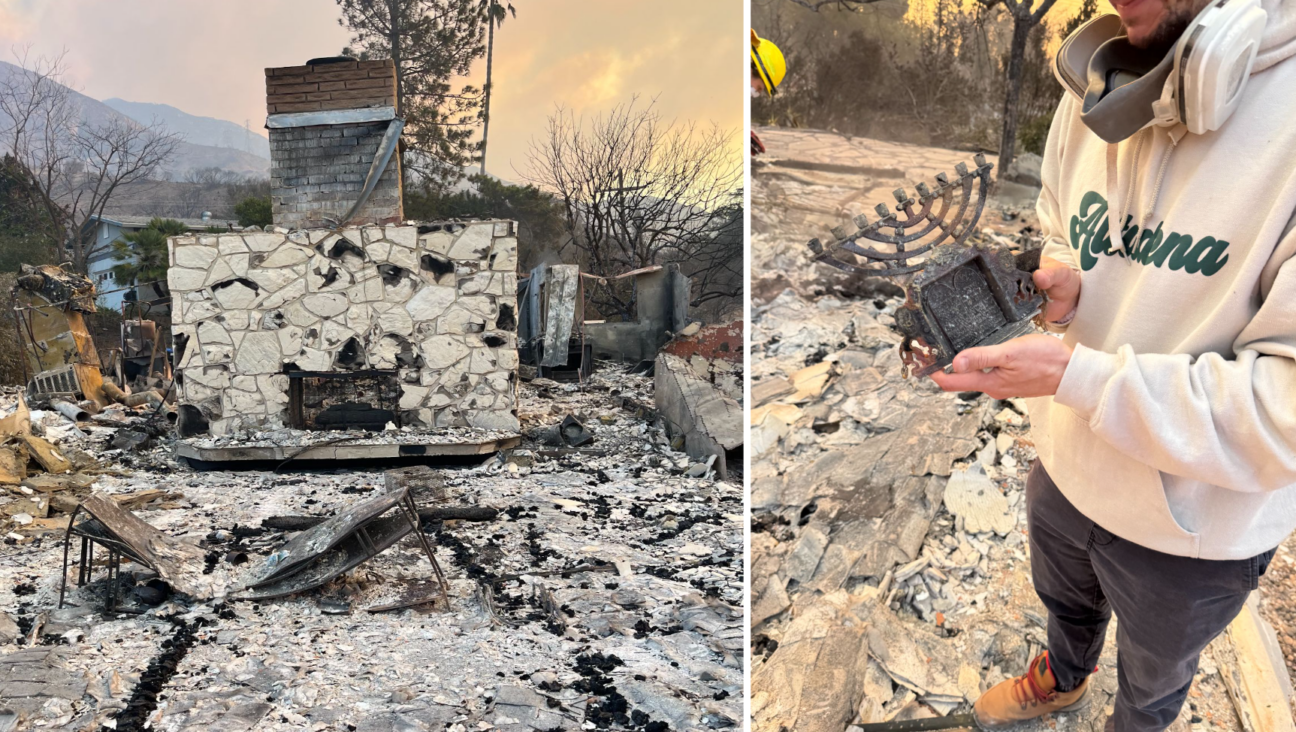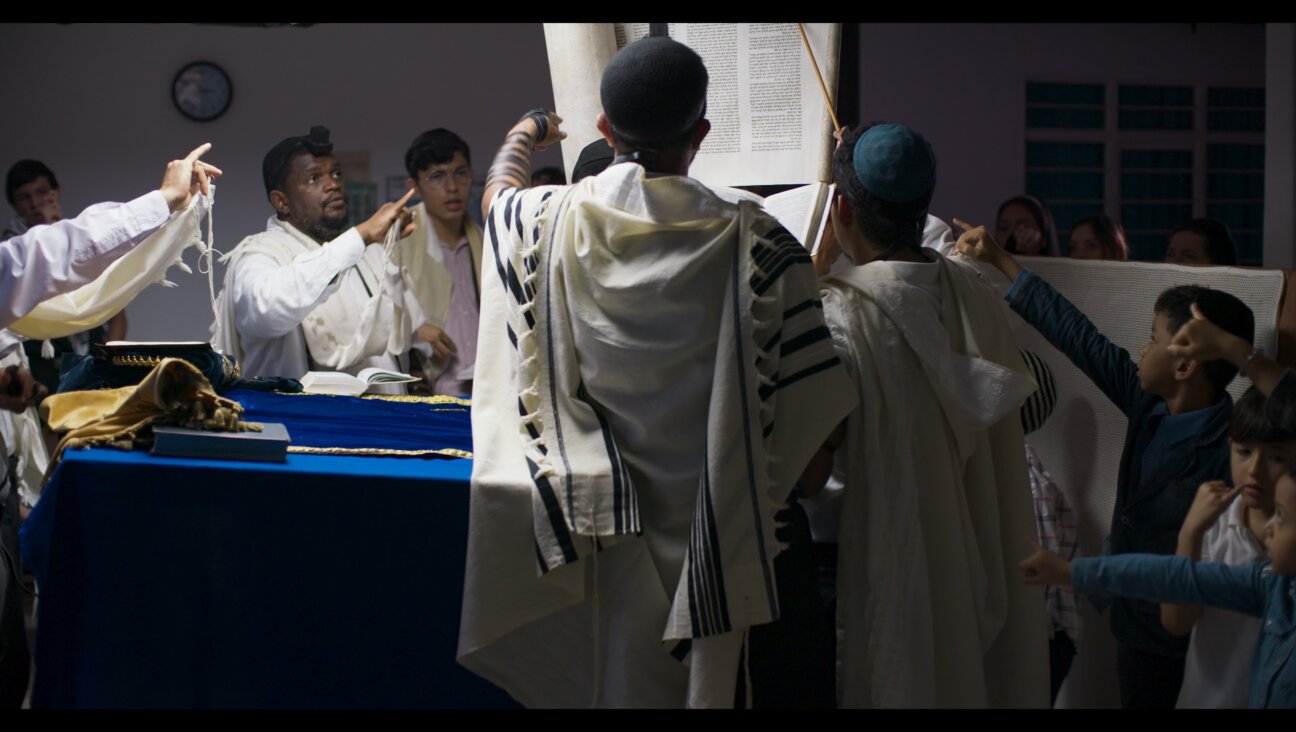YA Romance and ‘Hasidsploitation’

Like No Other
By Una Lamarche
Razorbill, 352 pages, $17.99

In her new young adult novel, “Like No Other,” author Una Lamarche explores the racial and religious tensions in Crown Heights through the chance encounter of a West Indian boy and a Hasidic girl and the relationship that blossoms between the two.
When a hurricane traps Devorah Blum and Jaxon Hunte in an elevator, the two Crown Heights teenagers find themselves drawn into a forbidden romance that forces both characters to re-examine their roles and communal lives. Lamarche paints Jaxon as a book-smart nerd with a heart of gold and Devorah as strong and inquisitive. Both characters speak with young, fresh voices and try to balance their own personal dreams with the values of their families.
Sadly, the narrative fails to subvert the tropes to which it falls prey. There is little reason given for why Devorah and Jaxon fall so madly in love, and Devorah’s brother-in-law, an uptight, misogynistic and racist Hasid and member of the Shomrim community patrol, is unforgivably outlandish.
What is more, the story is mired in mistakes and factual errors. Devorah quips that she should have applied for Birthright Israel, a program which, at 16, she is too young to take part in. Hasidim refer to their synagogues incorrectly as temples, Yiddish nouns are used as adjectives and Devorah and her siblings inconsistently refer to their father as Tatty, Papa and Daddy. I comment, not to nit-pick, but rather to highlight Lamarche’s critical negligence in her approach to her Hasidic characters.
While the author is clearly familiar with the geography of Crown Heights and uses names of actual community members in dialogue, she seems to have largely neglected the true inner workings of the community about which she writes.
Devorah and her family obsess about the laws of yichud, isolation with members of the opposite gender, to a level unheard of in Crown Heights. When Devorah is trapped in an elevator with Jaxon during a hurricane — a harrowing experience by any account — the Hasidic characters seem to focus solely on the fact that she was alone with a man, a black man (!), as opposed to what people would normally focus on: the nightmare of being trapped in an elevator during a natural disaster. Inexplicably, actual religious faux-pas, such as public contact between husbands and wives or brothers-in-law with sisters-in-law, are entirely overlooked.
LaMarche refers to the book of Tanya, the fundamental work of Chabad Hasidic thought, and mentions Mitzvah Tanks, the RVs that Lubavitcher yeshiva students use to engage the city’s Jews in Jewish practice, but these terms are used only superficially. In reality, Lamarche’s Hasidim are generic “Hasidim”: a pastiche of Satmar-inspired Hasidic Jews, the characters from “Fiddler on the Roof” and random factoids gleaned from New York City tabloids.
So while Devorah chafes at her destiny to marry young and give birth, many of the communal challenges she faces are non-existent in Crown Heights. Marriage at 18 is something exceedingly rare here and the Chabad institution of shlichut, the standard — though not universal — career choice for young couples, is never once mentioned. Ironically, Devorah’s “rebellious” desire to become a nurse-midwife would actually raise few eyebrows in the community.
The reason for the forbidden romance between Devorah and Jaxon is never truly explored. LaMarche seems to imply that it has far more to do with xenophobia than religious doctrine and hints at possible racism as the reason why Devorah’s family doesn’t want her to date a non-Jew. At one point, the characters seem to imply that the reason for the taboo is due to the “old bad blood” of the 1991 Crown Heights riots.
In LaMarche’s Crown Heights, Jews and blacks seem to live in total isolation from each other. When Jaxon walks down Kingston Avenue, the main Jewish drag in Crown Heights, community members are aghast to see him there.
When Devorah first sees Jaxon, she’s taken aback by, and I kid you not, “skin the shade of the smoky, dark chocolate hidden behind the gold foil of my Hannukah gelt.” It would seem the author is not only unaware that Hasidim and Caribbean Americans regularly see and interact with each other, but that our culinary, and thus visual, palate is hardly limited to Hanukkah gelt.
While the Crown Heights riots are briefly referenced — along with Trayvon Martin and Rodney King — they are never truly explored.
There is something unseemly in how LaMarche approaches all of this. It’s exploitative. Hasidim and communal tragedies are never given the justice or depth they deserve, but instead manipulated for the needs of the plot.
When Jacob, Devorah’s brother-in-law, and his Shomrim cronies mercilessly beat Jaxon and then whisk Devorah away to the non-existent and cultish “Chabad Residential Treatment Center” where, at 16, her parents have sent her to prepare for her marriage to a boy from New Square — as punishment for her rebelliousness — the story flies completely off the rails. It enters a land of lurid fiction that flies in the face of fact. This is Hasidsploitation.
This is too bad, because parts of LaMarche’s writing really shine: The book ends on a redemptive note of personal growth and commitment to values, and LaMarche’s treatment of both characters’ family lives ring true. Both our hero and heroine come from large, loving and quirky families that are a pleasure to encounter on the page. There’s a note of purity and realism in their interactions that is lost elsewhere in the book. Sadly, none of this is able to transcend the clichés that characterize the rest of the work.
Mordechai Lightstone is a rabbi by training, a director of digital communications by profession but a blogger by choice. He can be reached on Twitter @Mottel
A message from our Publisher & CEO Rachel Fishman Feddersen

I hope you appreciated this article. Before you go, I’d like to ask you to please support the Forward’s award-winning, nonprofit journalism so that we can be prepared for whatever news 2025 brings.
At a time when other newsrooms are closing or cutting back, the Forward has removed its paywall and invested additional resources to report on the ground from Israel and around the U.S. on the impact of the war, rising antisemitism and polarized discourse.
Readers like you make it all possible. Support our work by becoming a Forward Member and connect with our journalism and your community.
— Rachel Fishman Feddersen, Publisher and CEO























